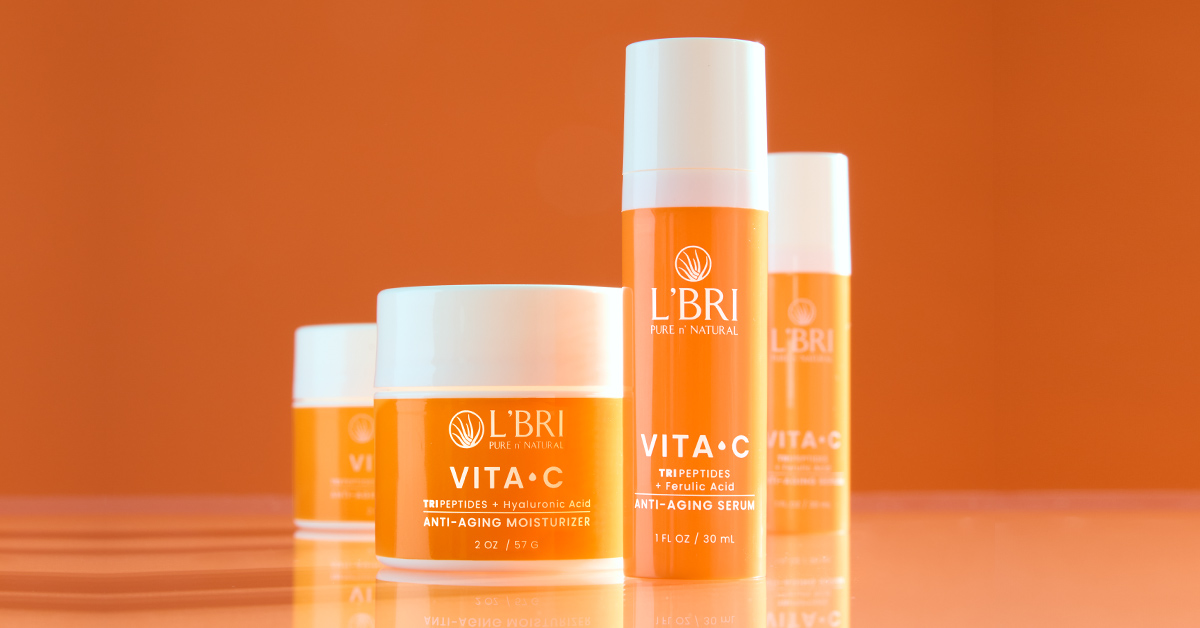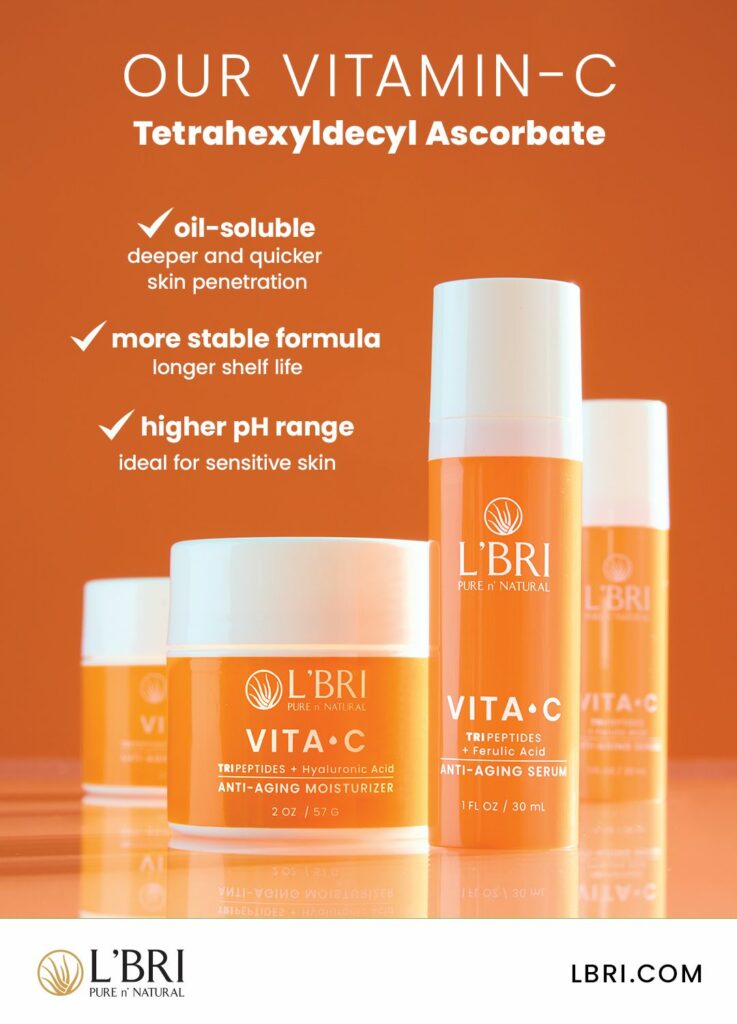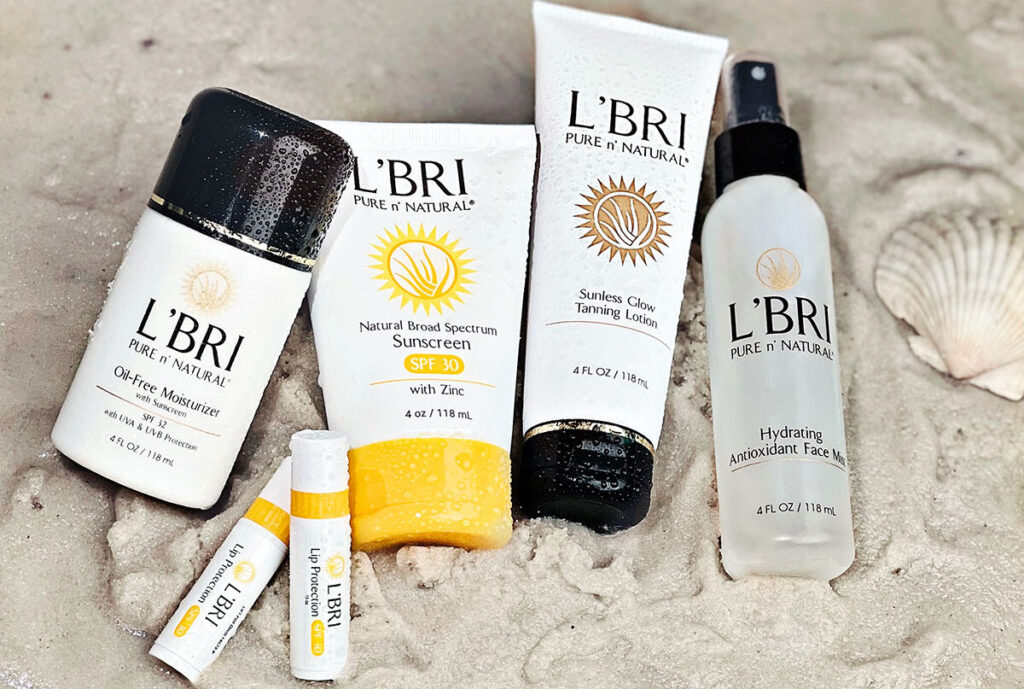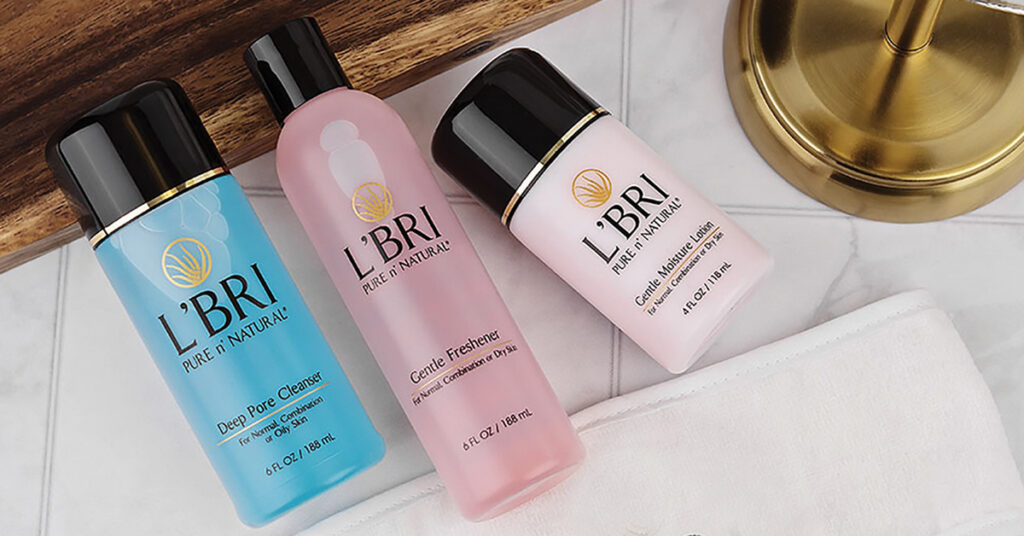
Why L’BRI Vita-C Skin Care with Vitamin C?Vitamin C is abundant in our skin and is one of the most potent antioxidants our bodies produce. But much like collagen, our levels of vitamin C are plentiful when we’re young, but they deplete naturally as we age. Fear not, friends. Vitamin C-packed serums and moisturizers can help replenish what is being lost, supporting brighter, smoother, more hydrated skin.
Vita-C Tripeptides + Ferulic Acid Anti-Aging Serum
Vita-C Tripeptides + Hyaluronic Acid Anti-Aging Moisturizer
What’s the best form of vitamin C for skin care?
The effectiveness of vitamin C depends on its formulation. When it comes to skin absorption and sublayer penetration, Tetrahexyldecyl (THD) Ascorbate, is unmatched.
What is Tetrahexyldecyl (THD) Ascorbate?
According to INCIDecoder.com “Tetrahexyldecyl Ascorbate is a stable, oil-soluble form of skincare big shot Vitamin C”. Now that we’ve decoded the formula, let’s define a couple of words:
Stable: not changing or fluctuating. Meaning this form of vitamin C is not likely to undergo chemical decomposition. Hooray, for reliability!
Oil-Soluble means it’s easily able to penetrate the waterproof outer layer of the skin. So, Tetrahexyldecyl Ascorbate will absorb rapidly and penetrate deeply into the dermis (a skin sublayer). And that’s what we’re looking for.
Antioxidants vs. Free-Radicals
As stated before, vitamin C is one of the most potent antioxidants in your skin. We all know antioxidants fight free radicals. We’ve heard it a million times, but what exactly does it mean?

What is a free radical?
Have you heard this joke? Never trust an atom. They make up everything. It’s funny because it’s true. Free radicals are needy atoms, the smallest parts of us. They spend their time roaming around your body stealing from healthy atoms causing “radical change”. Over time, these tiny thieves can break down the structure of your skin creating dark spots, fine lines, wrinkles, and other signs of aging. Free radicals are the villains in this story.
Where do free radicals come from?
Free radicals are produced naturally when your body breaks down the food you eat. However, outside aggressors like tobacco smoke and prolonged sun exposure also accelerate the production of these little thieves.
But there’s hope…
What is an antioxidant?
Antioxidants are atoms that act as everyday heroes. These little guys neutralize free radicals (or render them harmless) by giving them the very things they’ve been stealing from healthy atoms. Our bodies are amazing. Antioxidants to the rescue!
Where do antioxidants come from?
Harvard Health Publishing gives us a spot-on answer: “Your body’s cells naturally produce some powerful antioxidants. The foods you eat supply other antioxidants”. These include vitamin C, which may be the most abundant antioxidant in your skin, but it’s not alone. Vitamins A and E also play a role in this story. There’s a scientific reason your momma told you to eat your veggies.
Remember, your body makes antioxidants naturally, but as you age, production slows down. Now, let’s talk about how vitamin C (the ultimate antioxidant) can play a restoring role in the youthful appearance of your skin.
BRIGHTENING
To get a vitamin C-powered glow you must choose skin care products that target your skin’s underlying support system. Our concentrated Vita-C serum absorbs rapidly and penetrates deeply into the sublayers of your skin to improve skin tone and boost skin brightening. Its active, antioxidant ingredients fight free radicals to help reduce the production of melanin, which can create dark spots and a dull uneven skin tone.
Did you know vitamin C can boost the effectiveness of your sunscreen by fighting free radicals produced by UV exposure? For even better protection, our Vita-C serum is also formulated with vitamin E and Ferulic acid which can increase the UV protection of vitamin C.
How do Vita-C Tripeptides + Ferulic Acid Anti-Aging Serum and Vita-C Tripeptides + Hyaluronic Acid Anti-Aging Moisturizer fight the signs of aging?
Will vitamin C affect my dark skin?
VeryWellHealth.com assures us that “Vitamin C doesn’t affect normal skin coloration—it won’t fade away normal dark skin pigmentation, only the abnormal melanin deposits caused by sun damage.”
PLUMPING & SMOOTHING
Vitamin C is essential for producing collagen in the body. Collagen is the building block that keeps your skin looking youthful and smooth.
Fight Fine Lines and Wrinkles
Vitamin C along with skin conditioning Tripeptides can help reduce the signs of premature aging by encouraging the production of both collagen and elastin. This helps plump and firm the skin for a smoother appearance with fewer fine lines and wrinkles. Ferulic acid is a plant-based antioxidant that also plays a part by neutralizing those pesky free radicals.
Hydration
Wonderfully hydrated skin looks and feels more youthful. If your skin is dry, you can see it and feel it. The drier it is, the older it can look. Fortunately, vitamin C is clinically proven to help skin retain water, keeping it plump and smooth. And with the addition of Hyaluronic Acid, which holds up to 1,000 times its weight in water, our Vita-C moisturizer is a hydration sensation.
Can I Use Vitamin C Every Day?
According to Serum101.com, “You can use vitamin C on your skin every day to achieve optimal results. Use your vitamin C religiously to help even out your skin tone, reduce the appearance of aging signs, and give your skin a healthy glow”.
Vitamin C may be the star of these new target solutions but, as you have read above, it certainly doesn’t work alone. Aloe Vera Barbadensis Miller (our hero) is our preeminent ingredient for a reason. It has been shown to increase the anti-aging benefits of all our products while helping to improve overall skin health. Now is the time to create Vita-C Synergy for Believably REAL results.
Vita-C Tripeptides + Ferulic Acid Anti-Aging Serum
Vita-C Tripeptides + Hyaluronic Acid Anti-Aging Moisturizer


